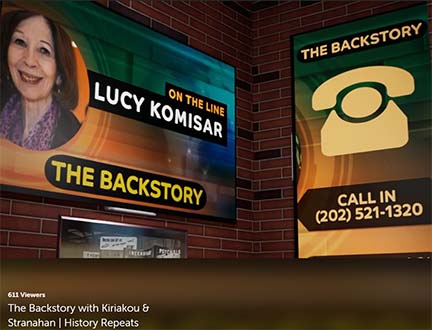
By Lucy Komisar
Feb 13, 2021
“The Backstory” 9 Feb with John Kiriakou & Lee Stranahan ran this interview with me about the corruption of former Haiti President Aristide, and, then relating to the Browder hoax, the fakery of former U.S. Attorney Preet Bharara and the fake news printed by The Economist.
Backstory host Lee Stranahan wanted me to talk about NJ telecom IDT and its bribery of Haiti President Jean-Bertrand Aristide in 2003, because he has followed IDT’s deal with Trump son-in-law Jared Kushner to allow IDT to do oil exploration in the Golan Heights that belongs to Syria but is now controlled by Israel. He talks about that after my interview on the Aristide story.

Haiti President Jean-Bertrand Aristide in 2003 met with an official of NJ telcom IDT during discussions about a contract to pay Haiti Teleco for calls from U.S. customers. That contract included agreement for IDT to send payments to a shell company in the offshore Turks and Caicos Islands.
A former IDT official, who objected to the deal, was fired and sued the company; The Justice Department and Securities and Exchange Commission investigated violation of the Foreign Corrupt Practices Act.
The whistle-blowing plaintiff, D. Michael Jewett, said he was fired in 2003 after voicing concerns over a deal in which he says Aristide was to skim IDT’s payments to Haiti’s government phone company via Mont Salem, a shell company run by a Turks and Caicos law firm. That firm has denied the shell company was a front for Aristide.
IDT got a court order that barred Jewett from discovering Mont Salem’s ownership.
Jewett alleged that IDT’s head of international business, Jack Lerer, referred to Mont Salem as Aristide’s bank account. Lerer denied that and says he never offered to pay “or caused money to be paid to” Aristide or Haitian officials. The Haitian government filed a civil racketeering suit against Aristide in 2005, alleging that Mont Salem had been his front for receiving kickbacks from several North American telecoms, including three cents a minute from IDT. Haiti dropped the suit for lack of funds.
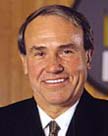
IDT had influential Republicans on its board. All friends of IDT CEO James Courter, a former Republican congressman from New Jersey, they were Rudy Boschwitz, former senator from Minnesota; James S. Gilmore III, former Virginia governor; Thomas Slade Gorton III, former senator from Washington State; Jack Kemp, former congressman from New York and 1996 vice presidential nominee; and Jeane Kirkpatrick, former U.S. ambassador to the U.N. under President Ronald Reagan.
Some probably found the lawsuit dicey. By 2006 they had quit the board.
In 2008 I reported that the Federal Communications Commission had fined IDT $1.3 million for failing to file its contract with Haiti. Courter then resigned as presidential hopeful John McCain‘s finance co-chair. My reports appeared in portfolio.com, the website of Condé Nast Portfolio, a major U.S. business magazine.
Why would IDT fail to file the contract? Maybe because it showed that in this Aristide-administration deal, payments were below the legal 23 cents a minute set by the FCC (money that would have gone to Haiti) and that IDT payments were ordered sent to a shell company account in the Turks & Caicos instead of to a government account in Haiti. (A shell company is a paper company that does no business other than to move money to hide corrupt deals.) I posted the contract.
The contract showed that IDT benefited by getting a cheap deal, paying only 8.75 cents per minute to Haiti. The money was sent to Mont Salem, a shell run by Turks & Caicos lawyer Adrian Corr. According to Michael Jewett, Mont Salem was owned by Aristide, who used it to siphon off a 3-cents per minute kickback.
Jewett said he asked Jack Lerer [IBT Vice President for International Business Development] what Mont Salem was, and he replied it was the private bank account of the President of Haiti, Mr. Jean Bertrand Aristide, that had been created by legal counsel for President Aristide, Adrian Corr, member of the law firm Miller, Simons and O‘Sullivan.
Corr denied that Mont Salem belonged to Aristide. All he had to do to prove his point was to provide documents of the true ownership and paper trail of Mont Salem’s finances. I posted the Turks & Caicos registration documents of Mont Salem signed by an official of Corr’s law firm, Miller-Simons-O’Sullivan.
Aristide‘s lawyer, Ira Kurzban of Miami, was active in denunciation of my articles. He certainly had an interest in the matter. Documents show that Kurzban got at least $10 million working for Aristide, including fees from the corrupt Haiti TeleCo. I posted those documents. As Kurzban worked for TeleCo, perhaps he could have told where the money that passed through Mont Salem ended up.
The case dragged on till 2011 when Howard Jonas, IDT CEO, gave me an interview that he would regret. He acknowledged for the first time that the IDT-Aristide meeting took place. He admitted, “In most cases, you’re just talking to the head of the telecom. It was unusual that the president himself would be involved with it.”
Not if he was asking for a bribe!
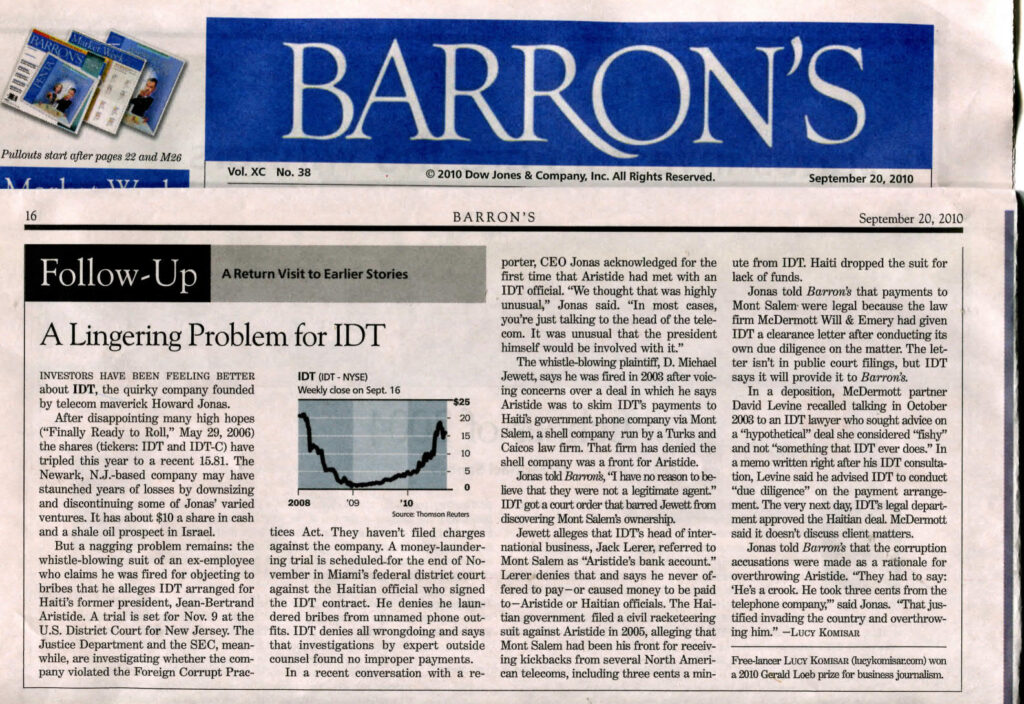
Trial was Set for Nov 9. My story appeared Sept 20th. Shortly after that, IDT settled with Jewett for $$. None of these details were reported in the daily mainstream press.
By the way, the Justice Dept went after two men in Miami who had also, like IDT, bribed Teleco. They were convicted and a judge sent them to prison. But the U.S. attorney in New Jersey, Chris Christie, gave the very Republican-connected IDT officials a pass.
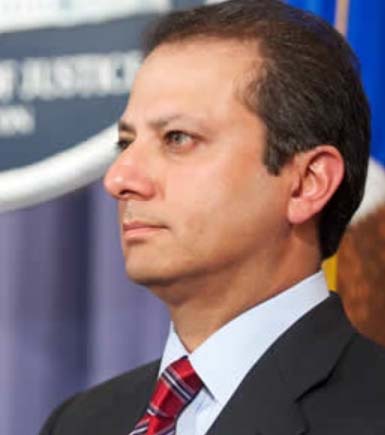
Then link to Bharara, who as U.S. attorney in the Southern District of New York was the “proxy” lawyer for William Browder in the Justice Dept suit against Prevezon, the Russian company which Browder (with no evidence) accused of stealing $230mil from the Russian Treasury, which the operative in the scam testified was done with help from Browder’s accountant, Sergei Magnitsky! Did Bharara deal with that? Of course not. He promoted the Browder hoax.
When I raised the question of Browder’s fakery by typing questions in Bharara’s zoomcast, he cut me off. Here’s the screen shot which says you have been cancelled!
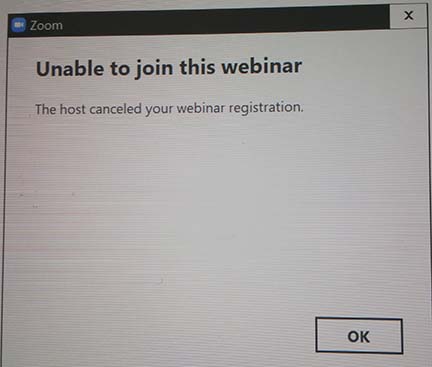
Here’s the story. The Questionable Integrity of Former US Attorney Preet Bharara
And to The Economist, whose stenographer (ie reporter) ran a story Jan 23 which repeated with no evidence Browder’s routine fabrications.
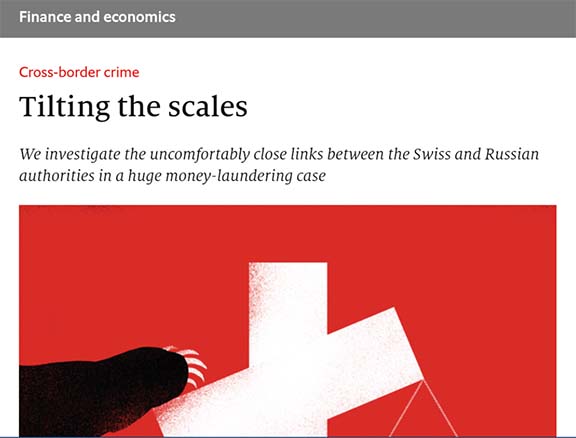
Did The Economist check the links out? No, because the story is based on lies by fraudster William Browder. Here’s the first part.
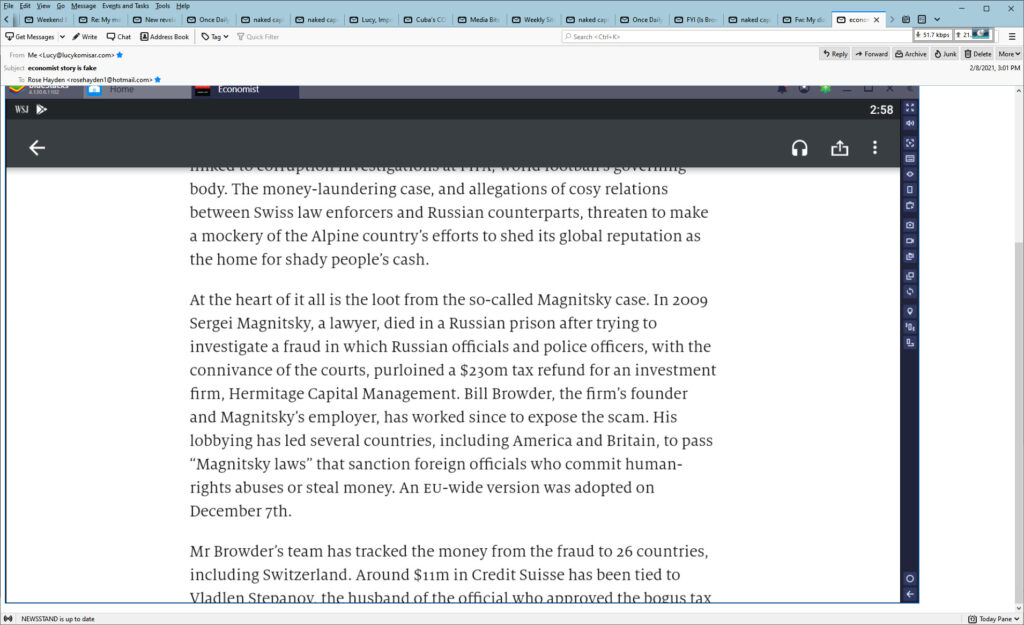
Magnitsky was not a lawyer. See his testimony (#8) which says he was an auditor for Firestone Duncan.
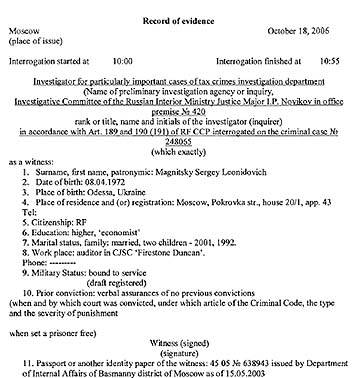
That’s the company hired by Browder to do his accounting.
Magnitsky did not investigate anything. Or expose anything. Zero evidence. Here are his three testimonies before investigators. No claim, no revelation or proof of who did the tax refund fraud.
The assertion Russian officials and police officer stole $230mil tax refund is with zero evidence. On the other hand, Viktor Markelov, an operative who went to jail for the fraud, said he got documents from Sergei Leonidovich, ie Sergei Leonidovich Magnitsky, Browder’s accountant. Because the scam was a Browder scam. See the page below from Markelov’s testimony.
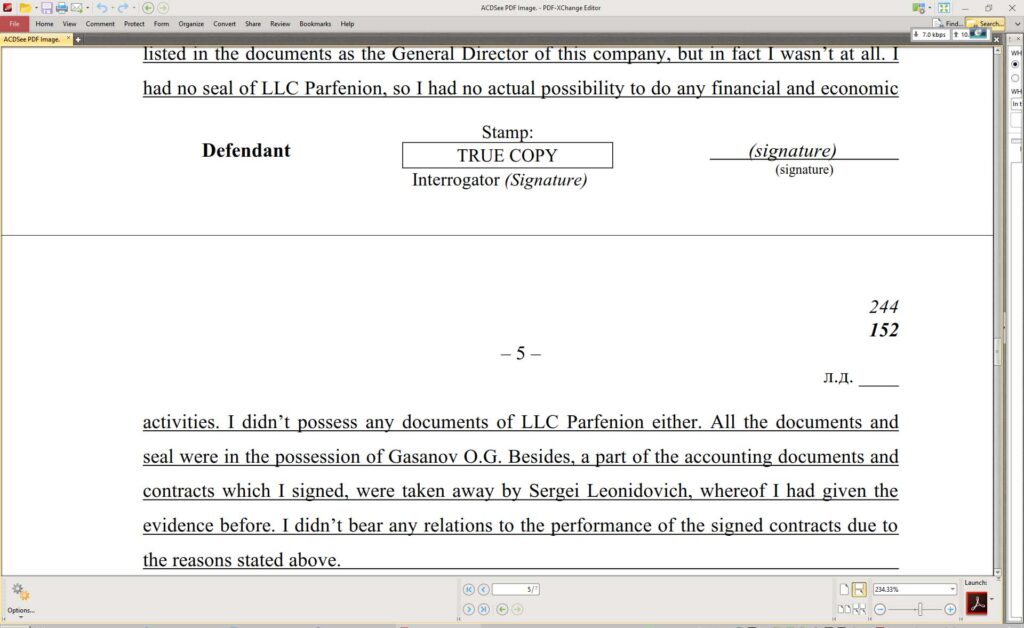
Then The Economist quotes Browder as saying his team tracked money from “the fraud” to 26 countries. Did any of them bring legal charges? He doesn’t get to that, but no, they didn’t. Does that mean the prosecutors of 26 countries are incompetent or corrupt? Did The Economist reporter attempt to find out? Apparently not. Really?
Here is why the Swiss dropped its investigation of Browder’s charges. There was nothing there! The Swiss investigated for nine years, using documents Browder supplied, and the story turned out to be fake. They found no proof. Did The Economist check that out? Apparently not.
Is The Economist story a fraud? I would say so.
https://www.pscp.tv/stranahan/1BRJjBVMgQRJw?t=24m50s starts at 1hr 15min 45sec


Always pertinent.